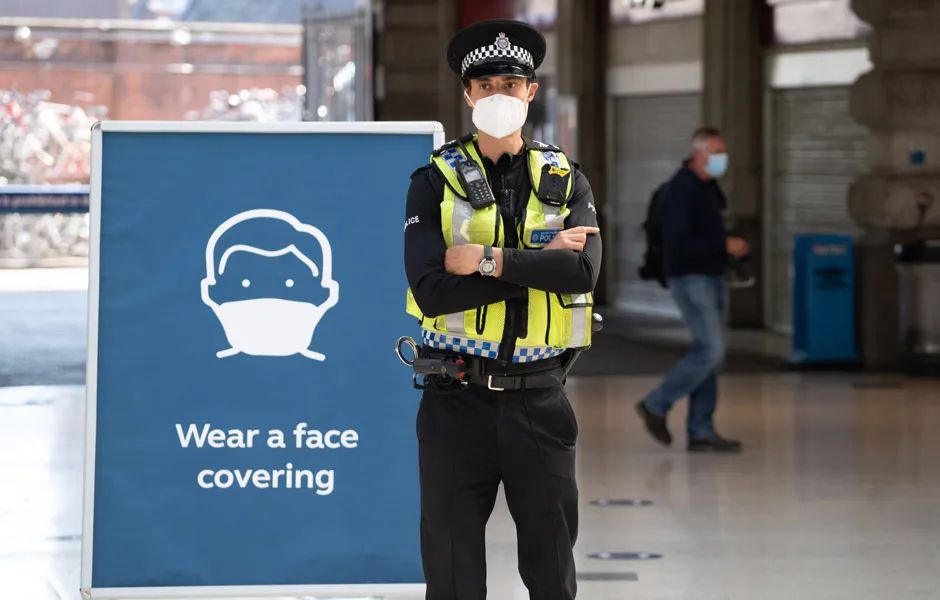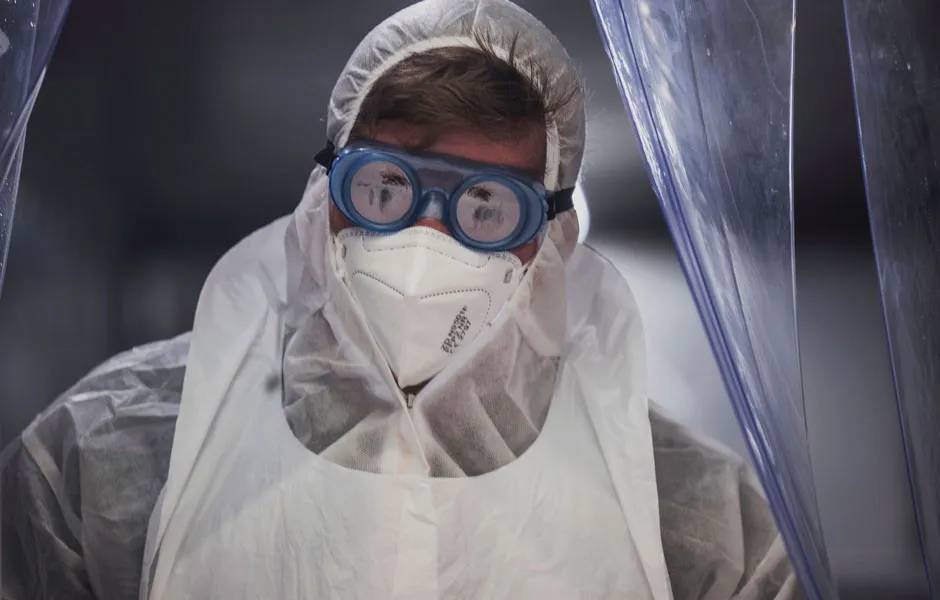While a UK vaccine rollout represents a huge leap forward in combating COVID-19, several new variants have been detected across the UK.
This includes the so-called ‘UK coronavirus variant’, now believed to be the dominant strain across the country.
As Prime Minister Boris Johnson announced during a press conference on 22 January, there is now "some evidence" this variant is associated with higher mortality than the old strain.
"In addition to spreading more quickly, it also now appears that there is some evidence that the new variant - the variant that was first identified in London and the south east - may be associated with a higher degree of mortality," he said.
Other new strains, including South Africa and Brazil variants, have also been identified, each raising new questions – including 'will the coronavirus vaccines still work?'
Here's everything you need to know.
What are the COVID-19 variants in the UK?
In the past weeks, three key major variants of COVID-19 have emerged.
The UK coronavirus variant

Known as B.1.1.7 among experts, the so-called ‘Kent variant’ is thought to have emerged September 2020. As the name suggests, it was first identified in southern England.
This strain of the virus may be up to 70 per cent more transmissible than the old variant. As such, it has now become the dominant strain throughout England. Fifty other countries have also detected the virus strain, according to the BMJ.
Scientists have shown that the UK variant has 23 separate mutations from the ‘old’ strain.
Experts have now also identified a second UK variant, found in Bristol, containing the some of the same mutations present in the South African and Brazilian variants. One of the mutations, known as E484K, may be able to infect people who have already had Covid-19. However, experts are still confident vaccines will prevent those infected from falling seriously ill.
Read more about coronavirus:
- COVID-19 vaccine rollout may not achieve herd immunity amid new variants, research suggests
- Coronavirus vaccines: Why scientists think it’s safe to mix them
The South Africa variant

Also called the 501Y.V2 strain, this variant is believed to have emerged in Autumn 2020 – around the same time as the UK variant.
According to the BMJ, as of 18 January 2021, it has been detected in at least 20 countries – this includes the UK, with the government confirming eight cases have been identified in January 2021.
The Brazil variant

Although two variants from Brazil have emerged, only one of these strains has yet been detected in the UK in January 2021.
According to Prof Wendy Barclay, who is leading a new project studying the mutations, the Brazilian variant “of concern” has not yet been identified in the UK.
Do the coronavirus variants have different symptoms?
No, there is currently no evidence to suggest these new variants cause different symptoms than the old virus strain.
The three main symptoms of the old variant are:
- A new and continuous cough
- A fever (a body temperature above 37.8°C)
- A change in smell or taste.
The government advises to get tested if you have any of these symptoms and to not leave home for any other reason.
Will the vaccine work on the new variants?
The three main coronavirus jab approved in the UK – the Pfizer, Moderna, and Oxford vaccines – all target the spike protein of the coronavirus, an area where the new strains have mutated.
However, all evidence so far has indicated that the Pfizer vaccine is effective against the UK and South African variants. Yet, many studies examining their effectiveness are either in their preliminary stages, or are yet to be peer-reviewed.

A 15 January report from COVID-19 Genomics (COG-UK) Consortium stated: “At the time of writing, we are not aware of any evidence that the mutations or combination of mutations detected to date will reduce vaccine efficacy.”
Sir Patrick Vallance, the government's chief scientific adviser, also indicated in a press briefing on 15 January that the current vaccines could be altered to combat the new strains.
“The new types of vaccine, particularly the messenger RNA vaccines, are really quite easy to adjust to changes in the virus. And that is a big change in vaccine technology, it’s a very important advance,” he said.
“It’s essentially days to make a new starting point, weeks probably to get to a new vaccine if it’s needed, provided the regulators are happy with the approach."
For more information, read our complete explainer: Will the vaccines still work on the coronavirus variants?
What is being done to investigate the new COVID-19 strains?
A new national research project to study the effects of emerging coronavirus mutations has recently been announced.
Funded by UK Research and Innovation (UKRI), the G2P-UK National Virology Consortium will look at how mutations in the virus affect key outcomes such as how transmissible it is, the severity of COVID-19 it causes, and the effectiveness of vaccines and treatments.
The consortium will bring together leading virologists from 10 research institutions who will work alongside the COVID-19 Genomics UK (COG-UK) consortium.
It will also work with Public Health England to boost the UK’s capacity to study newly identified virus variants and rapidly inform government policy.

Mutations in the virus’s genome occur naturally and while some of these will have no effect, others will change how it functions. As new virus variants arise the consortium will flag the riskiest variants, such as those associated with fast-spreading virus clusters, to study.
It will also create standardised versions of the virus with and without each mutation, so they can study the effects of each change individually.
Other members of the consortium will then study how these new variants alter the virus proteins, particularly the key spike protein on the surface.
Changes to the spike protein can affect transmissibility and could potentially alter the effectiveness of vaccines and antibodies that target the protein, so this analysis will play an important role.
Scientists will then use cell cultures and animal models to study if the mutations alter the immune response, virus transmissibility, the severity of the disease it causes, or the effectiveness of vaccines and treatments.
Read more about COVID-19:
